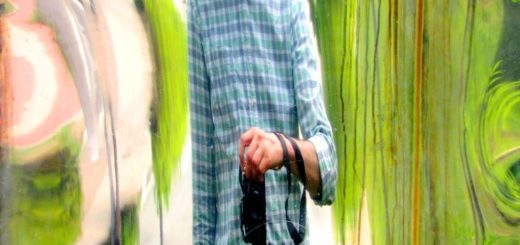Reflections on Maturity
The goal of life, as humans must live it, is not to get what you want so much as to find out what you want. Human life is essentially a search, not an awards ceremony.
Cuteness vs. Beauty.– Here in brave new world, mankind has systematically and insidiously substituted trivial and infantile playthings for all those notions that were once definitive of human aspiration. Hence self-knowledge has become “self-esteem,” truth “the facts,” the good “one’s values,” wisdom “getting in touch with your mind,” and art “self-expression” — the rare and difficult reduced to the universal and painless. Another such substitution, increasingly apparent everywhere but peculiarly advanced here in Korea, is the displacement of the beautiful in favor of “the cute.” Cartoon characters greet me everywhere. They tell me to wear a mask, welcome me to the bank, smile at me in every government office. Even the bizarrely squeaky clean hypersexual imagery of K-pop redefines pop music’s come-hither hip wiggling as merely another form of cuteness — the most salacious modern corruptions of beauty reduced through Huxleyesque moral reversal to nothing but slightly more realistic cartoon characters smiling and waving at you with their high-pitched children’s voices: “Welcome to my bedroom!”
Cuteness, when it rises to universal dominance, is not merely the younger sister of beauty, but rather the antithesis of beauty, an obstacle to the awareness and appreciation of beauty, the smothering of the natural desire for the beautiful with a soft, candy-scented pillow. A small child playing in the sand is cute. Jesus on the cross, dying to save mankind, is beautiful. A cartoon character with a funny little voice is cute. Botticelli’s “The Birth of Venus” is beautiful. A kindergarten teacher singing “ABC” with her class is cute. Socrates challenging a young man with questions about the meaning of virtue is beautiful. Adults should not aspire to being cute, and no serious adult should care much about cute things beyond the level of a moment’s passing amusement, as these things are both intrinsically small and emotionally diminishing. Beauty, by contrast, is a key to finding the meaning of life, and the most beautiful things are those which open a wider world to us. Cuteness bounces upon our surfaces with laughter and sugar, and then either quickly bounces away or becomes an insipid distraction. Beauty, which holds itself apart and must be approached in stealth and silence, abides as its emanations diffuse themselves through the soul’s depths and heights.
The paradox of immaturity.— The need to be noticed is simultaneously a declaration of being unworthy of notice. What else is a tyrant, in the political or personal context, but a man whose childhood craving for attention, rather than dissolving gradually in the hot river of self-examination, has remained whole and without sublimation, until finally calcifying in his soul as a permanent obstruction, an oversized monument to the child’s dread of being unnoticed, abandoned, or forgotten at the store?



